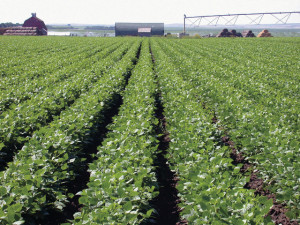The stage followed the entry of the US occupation forces to Iraq in 2003 is a milestone in the history of the agricultural sector, where agriculture has deteriorated And the government neglect and repeated marginalization and control of the organization Daash over a number of cities have contributed to the collapse of this vital sector, which today is undergoing its worst stages.
Iraq as a Rentier country depends on oil by more than 92% of its revenues noting that the other sectors such as agriculture is dependent on oil revenues, whether to import the means of production, or ready-made food, which would deepen the suffering of the agricultural sector and falling into what we see today.
The mismanagement and planning is the main reason for the deterioration of the agricultural sector and the loss of the country for a lot of revenue from this sector, like other sectors in Iraq, where the agriculture ‘s file was fallen since 2003 in the hands of governments that have failed for the conduct of public affairs of the country, bringing the agricultural sector to its worst state whereas the agriculture has become the victim of neglect and corruption, and Iraq lost a lot of money as a result of these policies and abuses.
Reports indicate that Iraq ‘s reliance on imported food products is by more than 10 percent of the market’s needs in certain crops, while Iraq loses 100 thousand acres of agricultural lands area annually due to various problems in the agricultural sector and the Iraqi economy as a whole.
In Iraq today, we see that the economy is overheated and revenues do not cover expenses, which calls for the need to introduce agricultural investment, and the introduction of modern machinery in agriculture to be able to keep abreast of developments in this field to achieve food security and the absorption of labor, which could contribute to support the economy with what is beneficial to the overall economy of the country.
In the Kurdistan region of Iraq seems a better situation than the central government noting that the the province of Sulaymaniyah has recently embarked on the implementation of measures to facilitate land possession for the Iraqis.
Experts in this regard believe that there are great investment opportunities for the agriculture sector in the Kurdistan with seriousness in dealing with this file in Kurdistan and it has set up a number of conferences and exhibitions for agricultural serious step towards the advancement of this sector but on the other side we see the Baghdad government has neglected the sector and relied on oil imports in everything.
Speaking of faltering for agricultural sector in Iraq, the sector suffers from many problems that formed as a whole a bulwark against any development or progress in this sector, which are as the following :
– Limited water as a result of the excesses of neighboring countries imposed on the state of Iraq, as well as Iran’s control on all irrigation outlets of Iraqi rivers that its source of waters from Iran and closing Hour alhoveizeh outlets in Maysan that led to dry land and population migration as well as the weakness of the irrigation plan in the distribution of water quotas to farmers. Per capita has reached (2,400 m³ / capita / year) in 2010, it is expected to be up to (1,700 m3 / capita / year) in 2025.
– The high salinity of the land as a result of water scarcity and pollution due to the cut of water rivers and tributaries, streams coming from Iran as well as from the Iranian Karun River that led to the contamination of water in the Shatt al-Arab.
– The absence of agricultural plans, strategies and lack of interest by those in charge of this file and the lack of experienced officials.
– cutting of the electricity current (Blackouts).
– The high price of seeds and fertilizers and chemical pesticides and vaccines.
– Competitive foreign product and competed the domestic product.
– The migration of peasants to the city and leave the farmland, causing a decline in agricultural production.
Although the review of successive governments for their achievements, but it did not promote this sector but suffered from major corruption files, like other sectors, included contracts and withdrawals of large sums of questionable legality of the Agricultural Bank.
Iraq is basically an agricultural country before being the oil country, but still the agriculture sector in Iraq is suffering from neglect and decline, and the continuous decline in arable land, and the successive governments did not provide true projects for the development of the agricultural sector, but wasted money and did not work on the development of this vital sector, but Iraq today is in urgently need to exploit its resources, particularly agriculture to be able to overcome the crisis that has ravaged its economy, and to be able to build what it has been destroyed by years, because the continuation of this neglect will lead to negative consequences for Iraq.
Rawabet Center for Research and Strategic Studies

